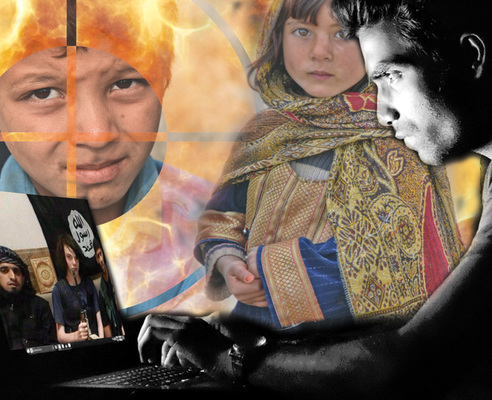
By Mark Clancy
Anti-terror police and the security services are actively monitoring more than 20 individuals in the area to avoid Christmas-New Year holiday attacks.
They are among as many as 100 people in the south-east region out of some 400 Melbourne-wide who are of concern or interest to the authorities.
And Professor Greg Barton from Deakin University said there was an ongoing attempt by Islamic State sympathisers to radicalise the region’s Muslim boys and young men through online forums.
However, he said that despite the ongoing monitoring, officials were also worried about the risk of so-called lone wolf terrorist attacks.
“What really worries authorities is the second or third-tier who are already known through drugs or criminality.
“The concern is lone actors or one or two people who are going to get a truck and drive it into a Christmas crowd,” he said.
Professor Barton said the region was typical of several such areas in most capital cities that were of concern to the security services.
“You’ve got distinct areas around Springvale, Endeavour Hills and through the council area of Casey,” he said.
But he added that police and Australian Security Intelligence Organisation officers are also taking a softly-softly approach by making one-on-one connections with friends, family, community leaders and even the person themselves to dissuade them from becoming radicalised.
The global islamic politics academic said that the authorities also tackled the problem by monitoring social media and phone use.
“There’s a lot of work being done quietly,” he said.
It is when these patterns of communication change, such as when an individual starts to connect with other known people in Europe or the Middle East, that the security services start to pay more attention.
“It’s not that the area is thick with Federal Police or ASIO but an eye is being kept on them.
“It’s a spectrum of engagement. In extreme cases, somebody would be under surveillance 24/7, but that’s very expensive; it takes a team of 30-plus people.”
He said community leaders were now willing to speak up if they suspected trouble to avoid being tarnished.
“It’s certainly not a problem that affects the larger community. In Melbourne, none of the mosques knowingly allow this activity.”
He said the authorities had learnt a lot about Islamic radicalisation since the Numan Haider knife attack on two police officers at Endeavour Hills police station in 2014, and since then had been effective in stopping people travelling to Syria to fight for Islamic State.
“The good news is that the authorities have this pretty much managed, but the bad news is that there are dozens and dozens of people who have to spend their time managing it.
“This problem is likely to be around for years to come, but it is a limited problem that is now understood.”
But he said that there were ongoing attempts to influence the region’s impressionable Muslim teenagers through online forums and that the police were kept aware of those people who were most at risk.
“It often takes the form of grooming and persuading in the same way as drugs or sexual exploitation.
“If you’re seen asking questions and look vulnerable, but keen to engage, then someone will target that individual.
“Youthful idealism or the troubles of youth, that creates a space for a recruiter by providing false friendships. It’s a numbers game.
“It’s always about recruitment and almost always social. They regard themselves as friends and follow each other’s posts.
“It’s rare to find anyone who doesn’t have any obvious links. But they’re the fringe of the fringe who have found each other.”
He said one of the best ways to deal with the problem is through sports centres and drop-in centres that take impressionable young people away from their computers and allow them to socialise in the real world.






